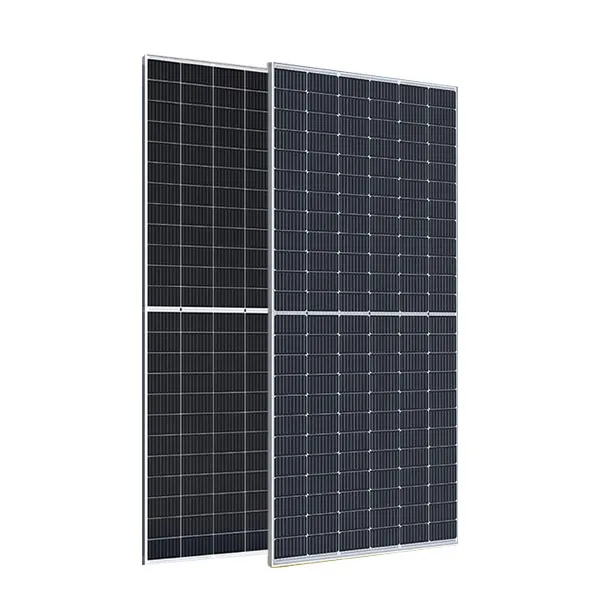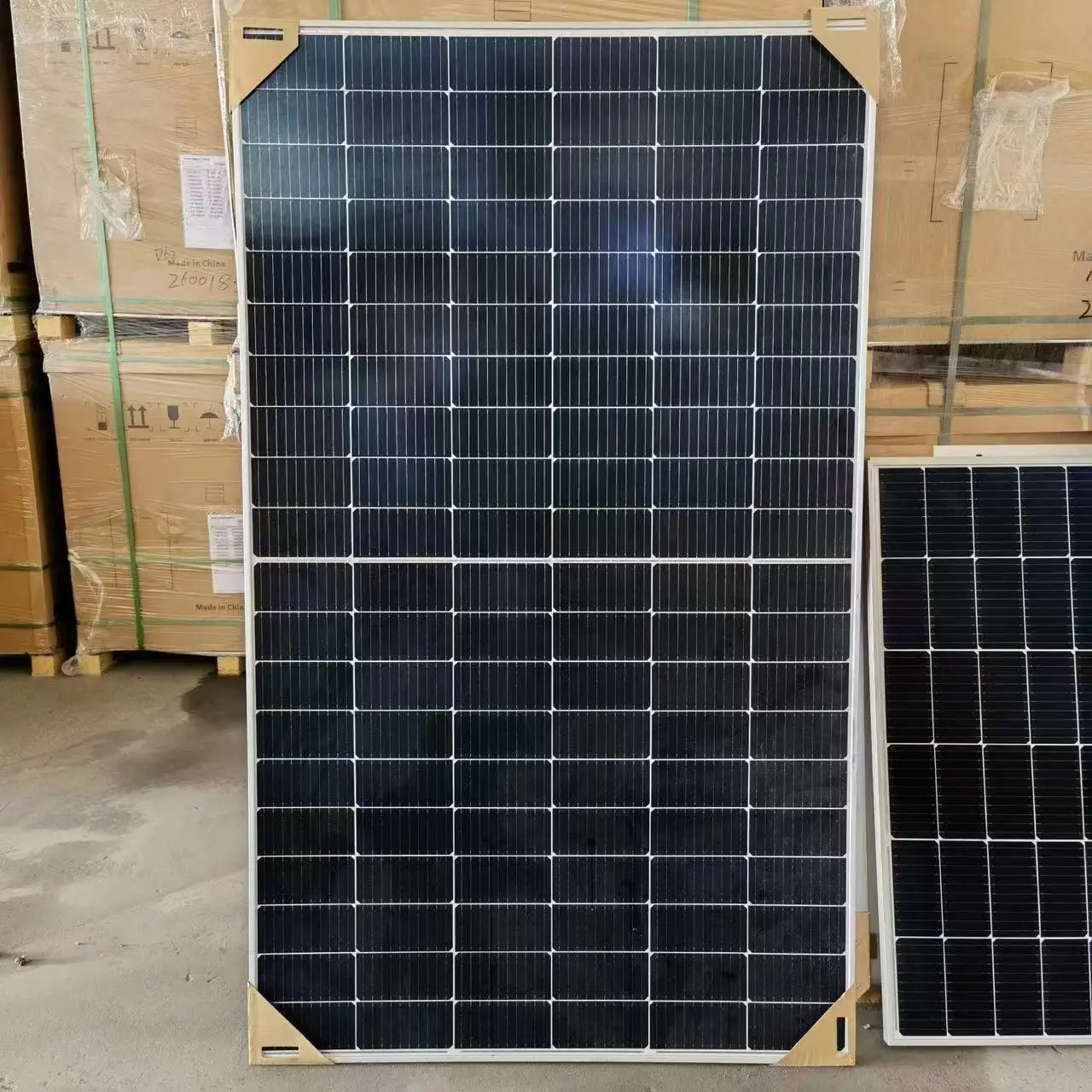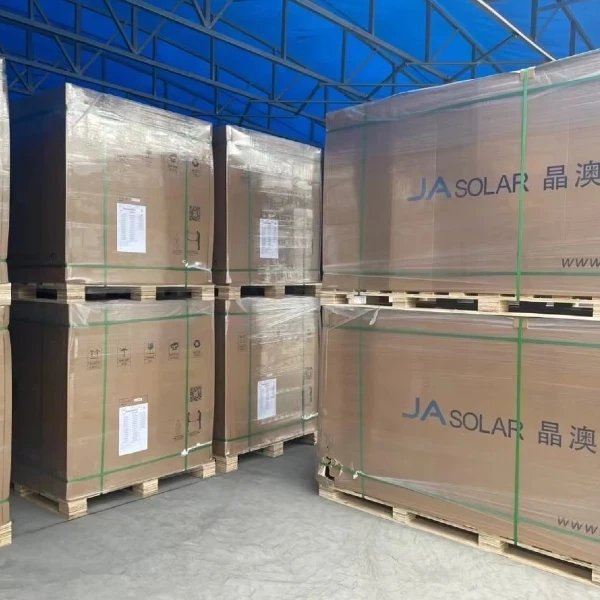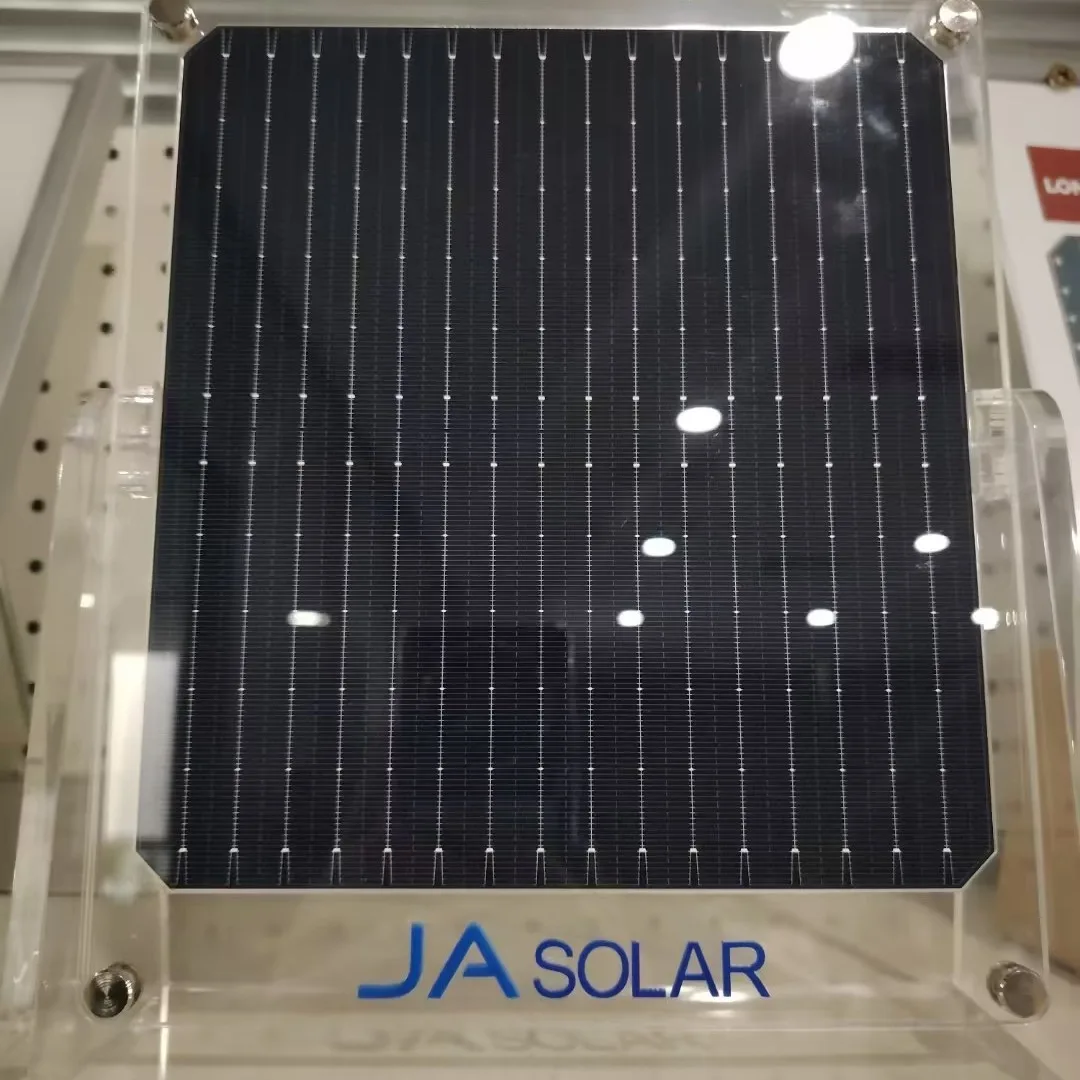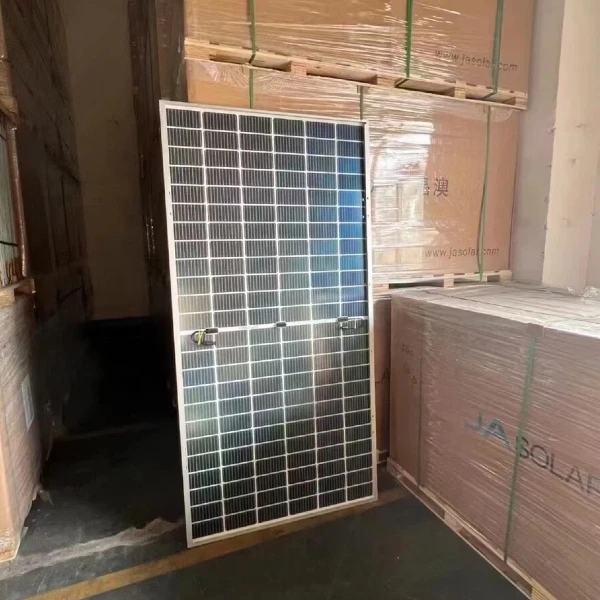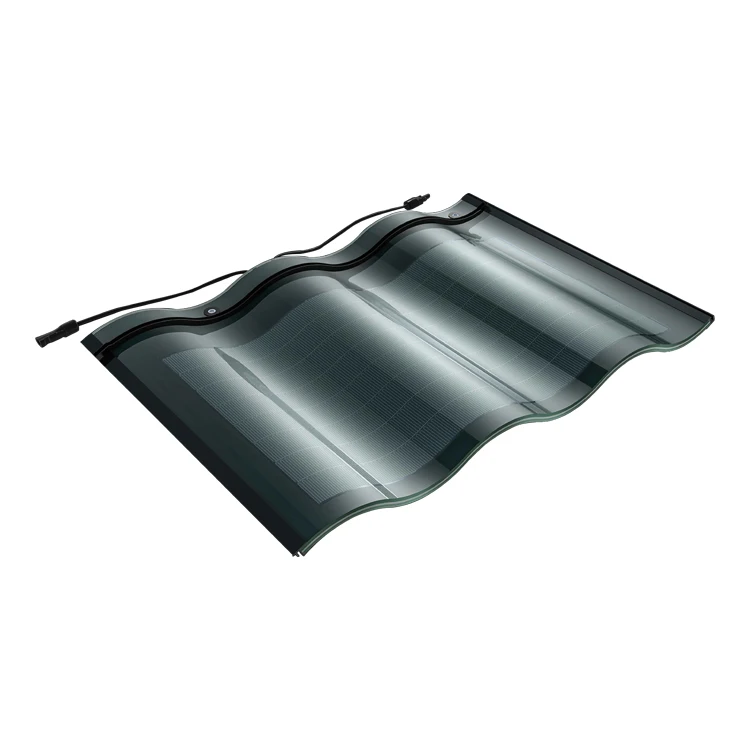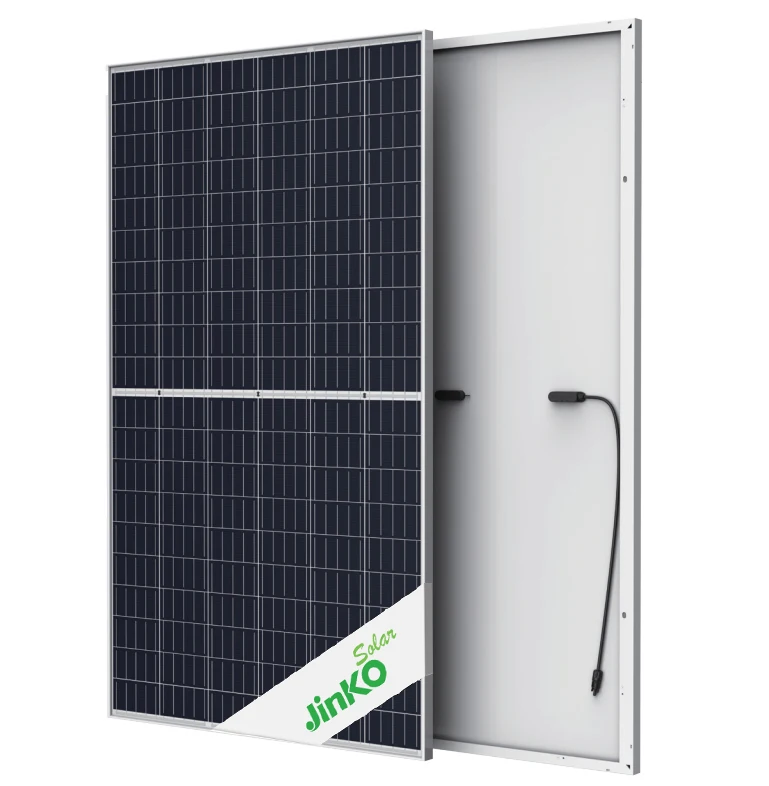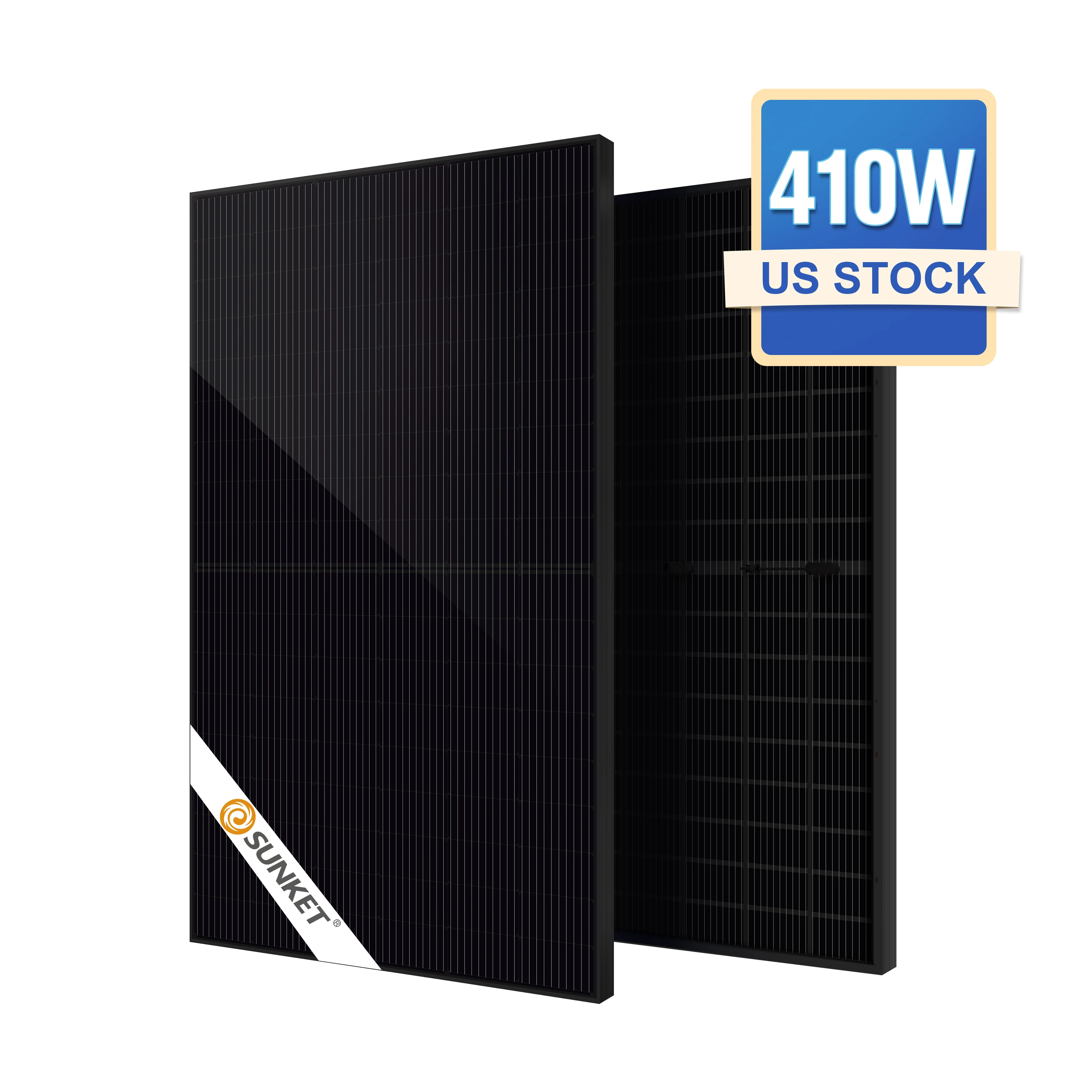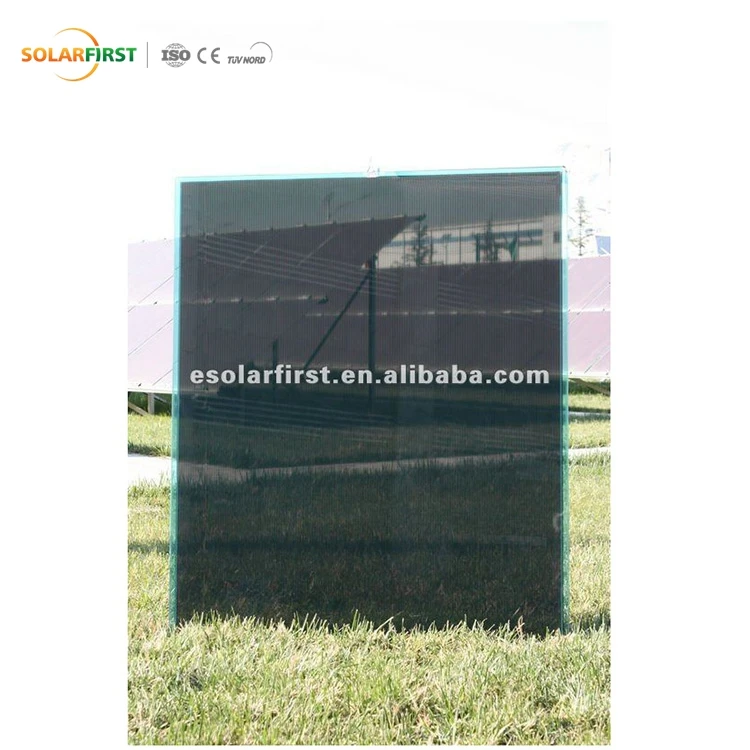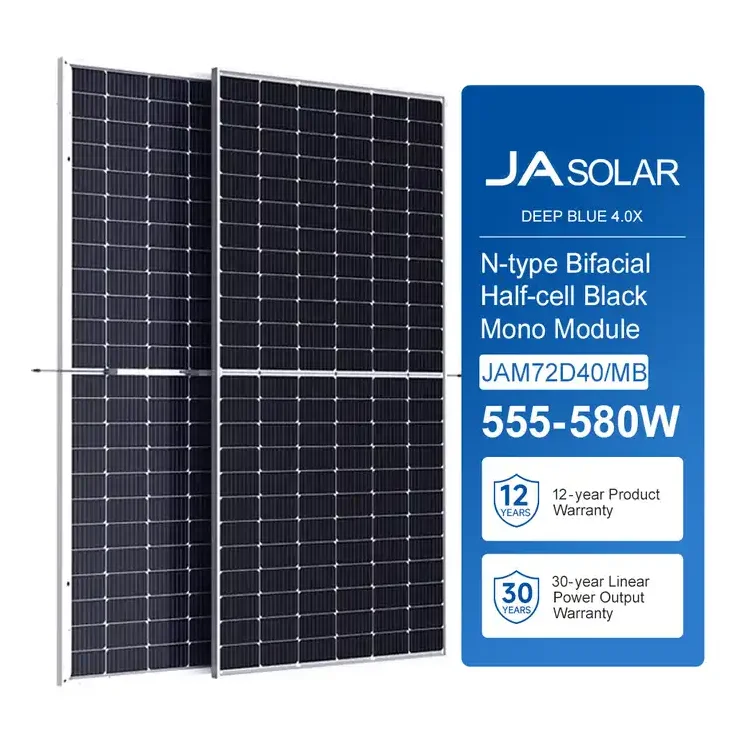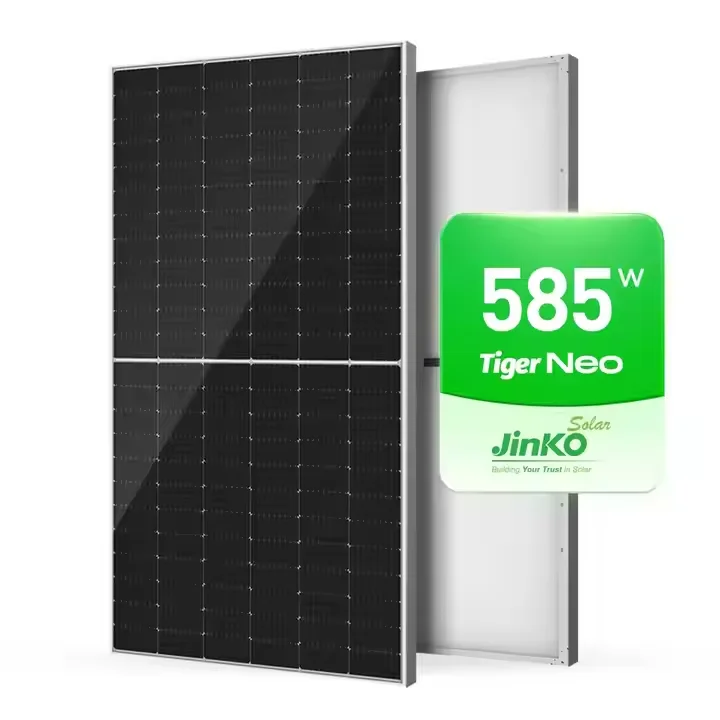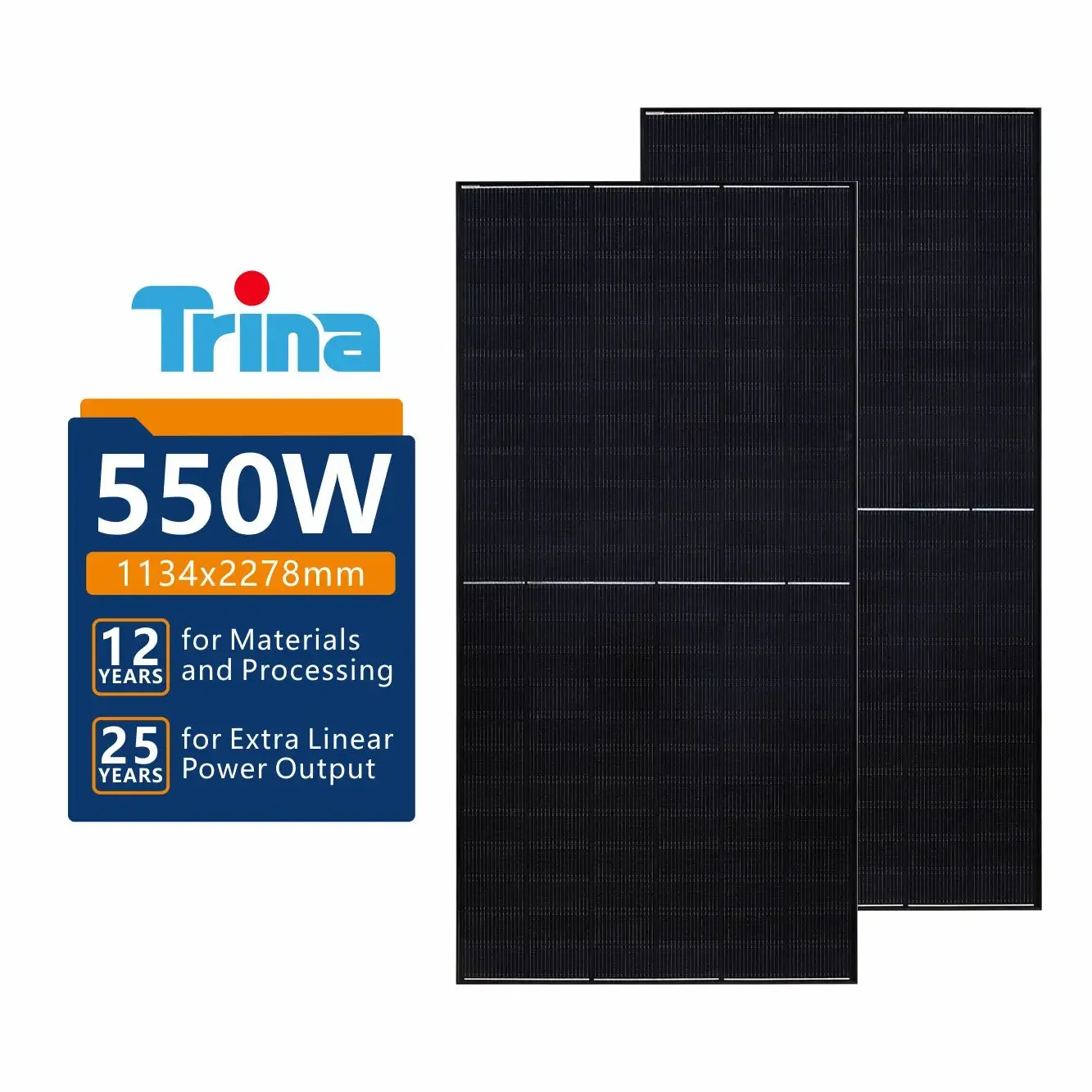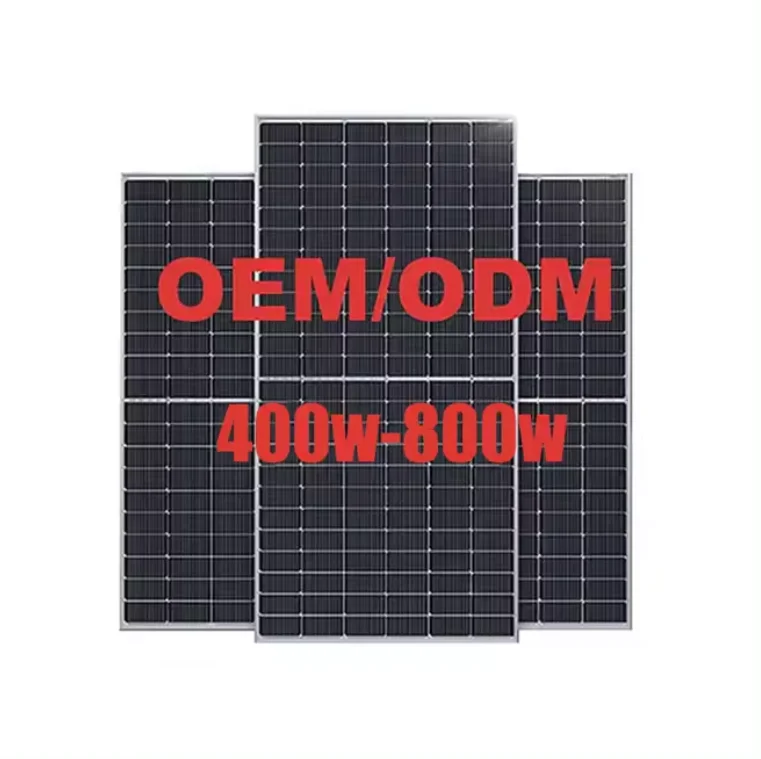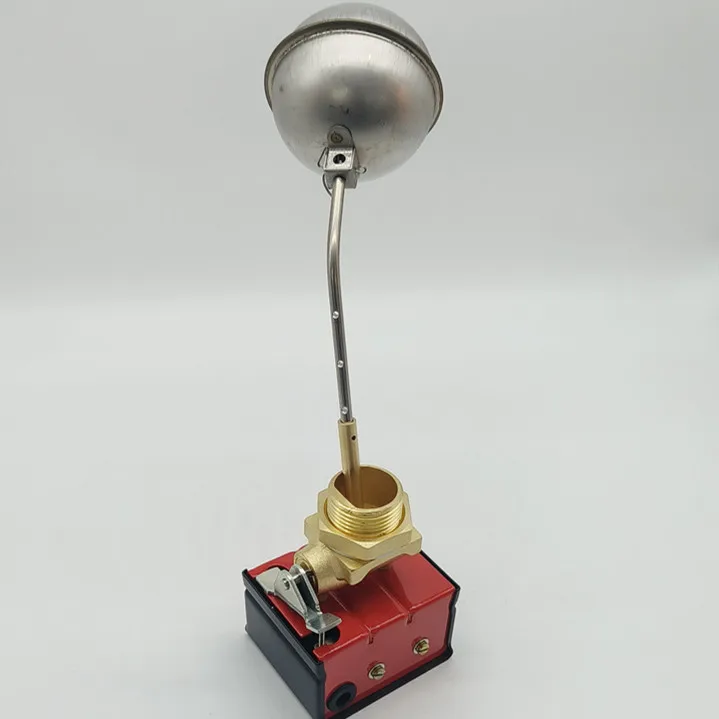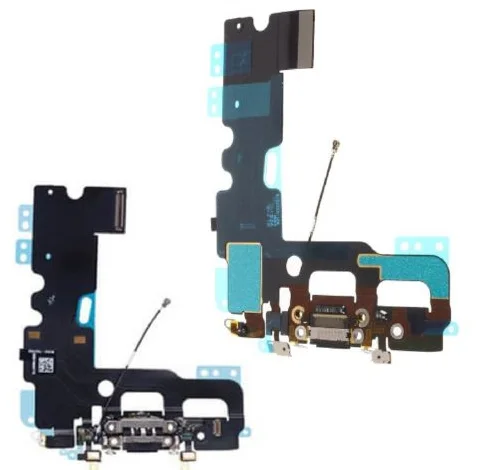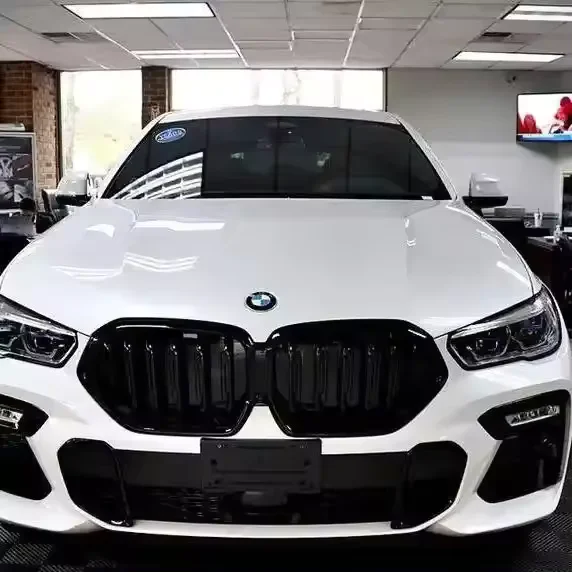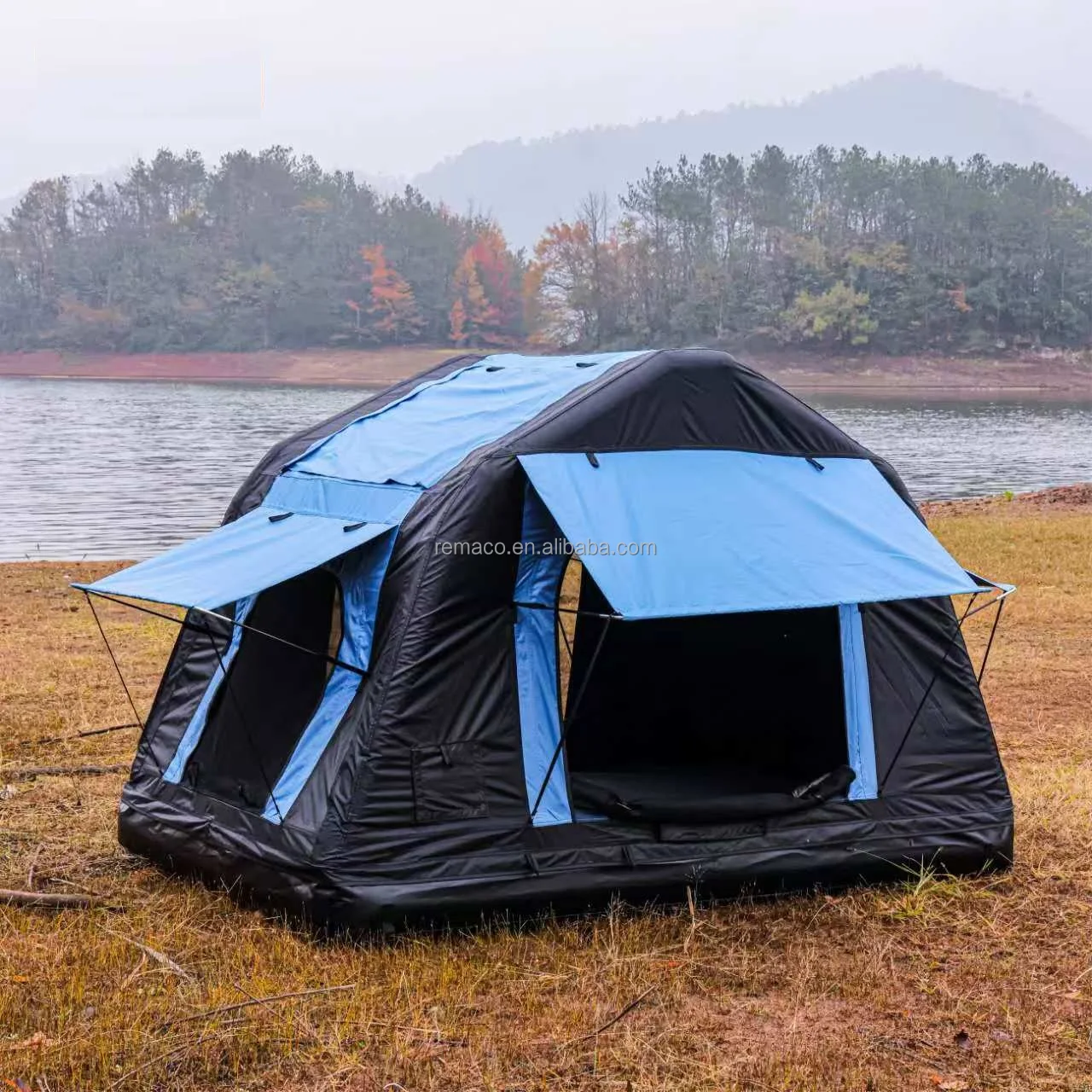Pv Modules Ja Solar 625W 650W N Type Topcon Solar Panel Double Glass
- Category: >>>
- Supplier: Jiangsu Jingxun Energy Co. Ltd.Jiangsu Ltd.
Share on (1601348497955):
Product Overview
Description
Product Description

Specification
item | value |
Cell size | 144(6*24) |
Type | Bifacial, N-type, Double Glass |
Place of Origin | China |
Panel Dimensions | 2465*1134*30mm |
Model Number | JAM66D45LB 605-630W |
Product Name | JA Solar JAM66D45LB 605-630W |
Cell Type | Mono |
Weight | 34.6kg |
No. of cells | 144(6*24) |
Glass | Double Glass |
Junction Box | IP 68 3 Diodes |
Company Profile





Product packaging


FAQ

Q1: What are photovoltaic panels?
A1: Photovoltaic (PV) panels are devices that convert light, especially sunlight, into electricity using photovoltaic cells. They are key components in solar energy systems and are widely used for generating renewable and sustainable power.
A1: Photovoltaic (PV) panels are devices that convert light, especially sunlight, into electricity using photovoltaic cells. They are key components in solar energy systems and are widely used for generating renewable and sustainable power.
Q2: How do photovoltaic panels work?
A2: PV panels work by allowing photons from sunlight to knock electrons free from atoms in the panel's silicon-based cells. This creates a flow of electricity that can be used to power homes, businesses, or stored in batteries for later use.
Q3: What are the benefits of using photovoltaic panels?
A3: PV panels offer numerous benefits, including reducing reliance on fossil fuels, lowering energy costs, and decreasing greenhouse gas emissions. They also require minimal maintenance and have a long lifespan.
A3: PV panels offer numerous benefits, including reducing reliance on fossil fuels, lowering energy costs, and decreasing greenhouse gas emissions. They also require minimal maintenance and have a long lifespan.
Q4: How do I choose the right photovoltaic panel for my needs?
A4: Choosing the right PV panel depends on several factors, including your energy needs, budget, space availability, and climate. It's important to consult with a professional to assess your specific situation and recommend the best panel type and size for your needs.
A4: Choosing the right PV panel depends on several factors, including your energy needs, budget, space availability, and climate. It's important to consult with a professional to assess your specific situation and recommend the best panel type and size for your needs.
Q5: How much energy can photovoltaic panels produce?
A5: The amount of energy a PV panel can produce depends on several factors, including its size, efficiency, and the amount of sunlight it receives. In general, a typical residential PV system can produce enough energy to offset a significant portion of a household's electricity use.
A5: The amount of energy a PV panel can produce depends on several factors, including its size, efficiency, and the amount of sunlight it receives. In general, a typical residential PV system can produce enough energy to offset a significant portion of a household's electricity use.
Q6: Can photovoltaic panels be used in cloudy or rainy weather?
A6: Yes, PV panels can still produce electricity on cloudy or rainy days, although they will produce less energy than on sunny days. The panels can still capture diffuse sunlight and some light can pass through clouds and be converted into electricity.
A6: Yes, PV panels can still produce electricity on cloudy or rainy days, although they will produce less energy than on sunny days. The panels can still capture diffuse sunlight and some light can pass through clouds and be converted into electricity.
Q7: Are photovoltaic panels environmentally friendly?
A7: Yes, PV panels are a highly environmentally friendly form of energy production. They produce no greenhouse gases or other pollutants during operation and can significantly reduce a household or business's carbon footprint. Additionally, the production of PV panels has become more sustainable over time, with many manufacturers using recycled materials and improving their manufacturing processes to reduce waste and emissions.
A7: Yes, PV panels are a highly environmentally friendly form of energy production. They produce no greenhouse gases or other pollutants during operation and can significantly reduce a household or business's carbon footprint. Additionally, the production of PV panels has become more sustainable over time, with many manufacturers using recycled materials and improving their manufacturing processes to reduce waste and emissions.

We Recommend
New Arrivals
New products from manufacturers at wholesale prices
